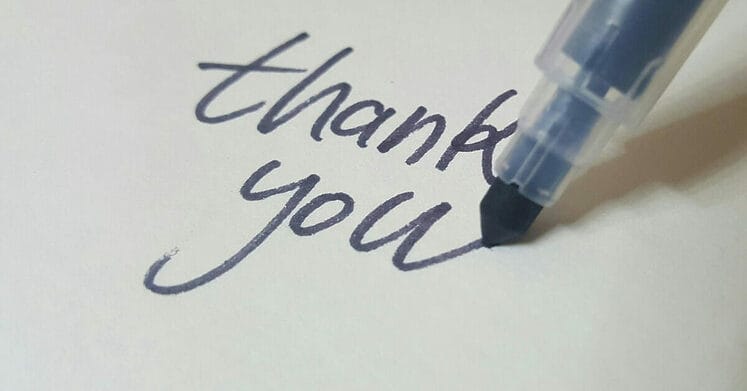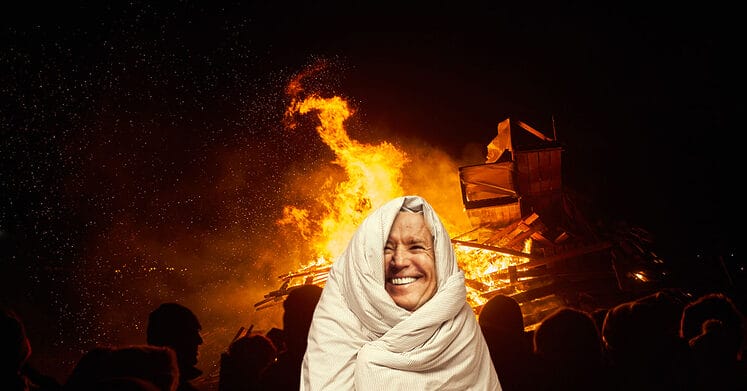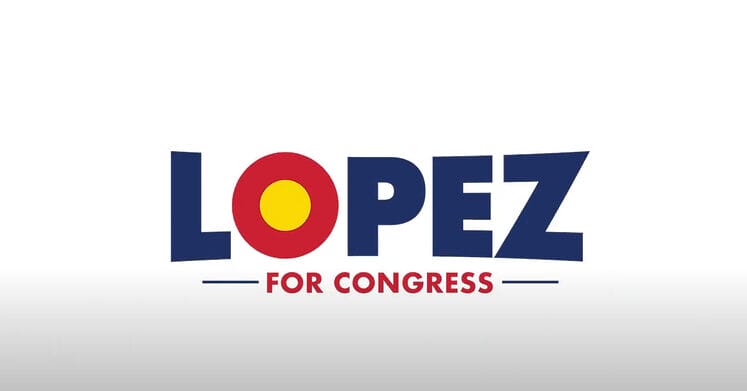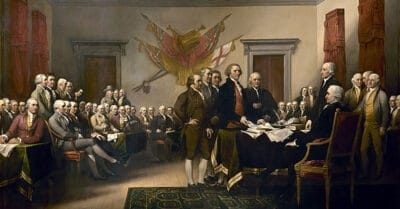A Jewish farmer in the old country goes to the town rabbi and complains that his house is too small. The farmer can’t stand all the noise at home of the children playing and screaming and his wife cooking, cleaning, and singing, while taking care of the household.
The rabbi tells the farmer to bring his chickens to live in the house with him. The farmer is baffled, but he does it. The next day, the farmer goes back to the rabbi to complain that the situation is worse. The rabbi tells him to bring his goat into his house. The farmer does and things get even worse. The third day the farmer goes back to the rabbi and complains things are terrible and the noise continues all night. The rabbi insists the farmer bring his cow into the house. The farmer does, and now the farmer is beside himself. This is not working. The noise is unbearable, so the farmer goes back to the rabbi to complain. Finally, the rabbi tells the farmer to return all the animals to the yard. The farmer does as he is told. The next day the farmer returns to the rabbi to report that life is great, and he slept better than he can ever remember.
The point of the story is we should focus on the gifts we have instead of what we want. And most importantly, things can get worse. Instead of complaining the farmer could be thankful that he had a house, small that it may be. The farmer could have looked at his screaming children and thought,” I am lucky to have healthy and happy children playing loudly.” The farmer could have been more grateful that he had a wife who cheerfully made clanking noises with her pots and pans and cooked wonderful meals for him and his children. The farmer could have been more grateful that his wife sang while she did her household cleaning and was happy to do so to support her family. The farmer could have been more grateful to open his eyes every morning and get to live another day.
This story can be helpful in business as we tend to dread Monday mornings and the beginning of the work week. In a previous job my co-workers could not wait for the start of the weekend and eagerly welcomed Friday. They thought I was crazy when I told them I couldn’t wait for Mondays since I was grateful to have a job I enjoyed. Of all the mementos I have collected in forty years of being in business, I cherish the Thank You cards that customers and industry friends have sent me. I started working in my father’s business as a manufacturer’s representative selling florist supplies. My father taught and instilled in me a work ethic that would earn me praise from customers when I would stock their shelves, organize their back stock, take an inventory, attend their trade shows and help the customer promote and sell what they had purchased from me to their end user.
Early in my career, I would receive “Thank You” cards from customers for helping them with their success. My father was amazed. In his many years of working with these same customers he would rarely get a “Thank You,” let alone a card. He said to me, “Keep those cards in a file and bring them out and reread them when things aren’t going so well. It will remind you of your past successes.” My father was right. I have had some rough spots in my business career and taking those “Thank You” cards out to read from time to time reminds me how lucky I am to have customers that would take the time to send a heartfelt acknowledgment of gratitude.
My father was grateful to have established customers and help them make a profit so he could as well. Overtime, this created a mutually benefitted trust for their business interactions. I, too, was thankful for these relationships, the recognition by those customers that took the time to write their gratitude down on a piece of paper and affix a stamp and mail it to me was an affirmation that made the extra efforts worthwhile and satisfying to do.
Think about all the little things people do for you every day without expecting any reward. A stranger opens a door for you. Another driver lets you edge out of a driveway allowing you to enter into traffic. A pedestrian picks up a piece of trash in front of your business and throws it in the can even though they did not drop it. These little acts of civility deserve our thanks. They are reminders of how one should act in public and with each other. I am thankful I was taught manners and to be polite.
You might not remember all the times your parent told you to say, “Thank You” when someone did something nice for you. Your parents had to repeat this over and over to you until it became a habit. The habit was expeditated when you didn’t say “Thank You” and you received a whack on top of your head for not saying it automatically. The point being, it took the constant reminder by your parents to say “Thank You” for you to get it and make it routine. You may have experienced this with your own children. It takes practice.
When my wife sends a gift to one of our grandchildren for their birthday, the reward she receives back is the illegible writing of a “Thank You” card. These treasures are cherished as if they are to be saved in a safety deposit box. A civil society should cherish the timeless aspect of such etiquette which needs to be taught, nurtured, and reinforced. Stand out of the crowd by being a writer of “Thank You” cards. Write one a day to someone you care about or someone you do business with. Let others receive your gratitude and you will solidify your relationships and make the receiver of your gratitude feel great.
“Thank You” for reading my essay.










Responses